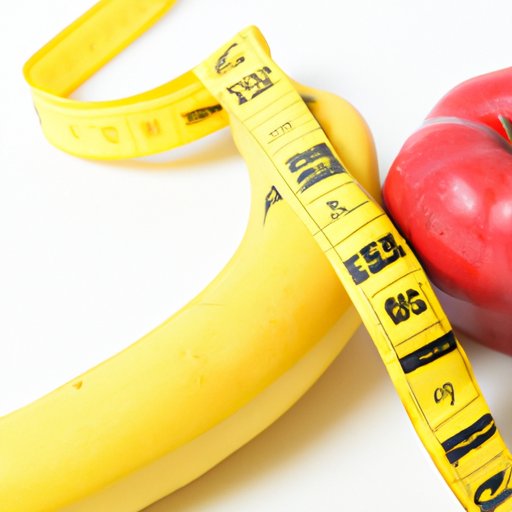
I. Introduction
Weight loss is a common goal for many women, but with so much conflicting information out there, it can be challenging to know where to start. Understanding the relationship between calorie intake and weight loss is a critical step in achieving this goal. In this article, we will explore the science behind calorie intake and weight loss, how to determine the right calorie intake for weight loss, bust myths, and provide tips for maintaining a healthy caloric intake for sustainable weight loss.
II. The Science Behind Weight Loss: Understanding the Relationship between Calories and Women
At its simplest, weight loss comes down to energy balance: the number of calories consumed must be less than the number of calories burned to create a calorie deficit, leading to weight loss. Factors that impact energy expenditure in women include age, weight, height, and physical activity, making it essential to assess individual needs accurately.
III. Breaking Down the Numbers: How Many Calories Do Women Need to Lose Weight?
Creating a calorie deficit is the foundation for weight loss. A general rule of thumb is to reduce daily caloric intake by 500–750 calories to lose 1–2 pounds of weight per week. However, daily calorie needs can vary based on individual factors, including age, weight, and activity level. Tools such as online calculators can help determine a reasonable daily calorie intake for weight loss.
IV. Calorie Counting 101: A Beginner’s Guide to Weight Loss for Women
Tracking calorie intake through apps, food diaries, or other resources can be an effective way to achieve weight loss goals. Accurately measuring portions and reading food labels is essential to ensure accurate tracking. Avoiding common pitfalls, such as eating back calories burned during exercise, can further support weight loss.
V. Busting the Myths: Debunking Common Misconceptions about Calorie Intake for Women
Several myths surround weight loss and calorie intake, including the problem of slowing metabolism with too few calories. However, a balanced, low-calorie diet that provides sufficient nutrients is critical to preventing this problem. A diet that emphasizes nutrient-dense foods can improve well-being while supporting weight loss goals.
VI. The Importance of Being Active: How Exercise Plays a Key Role in Weight Loss for Women
Exercise can help create a calorie deficit, helping to preserve muscle mass during weight loss. Resistance training is particularly effective in supporting muscle mass. Cardiovascular exercise can also support weight loss goals, with activities such as walking, jogging, cycling, and swimming.
VII. Eating for Success: Tips and Tricks for Navigating a Low-Calorie Diet for Women
Navigating a low-calorie diet can be challenging, with hunger and cravings posing significant barriers to success. Eating protein and fiber-rich foods can help keep women feeling full and satisfied, and hydrating adequately can also help with hunger and cravings.
VIII. The Long-Term Benefits: How Maintaining a Healthy Caloric Intake Promotes Sustainable Weight Loss for Women
Maintaining a healthy caloric intake is essential to support sustainable weight loss for women. Avoiding yo-yo dieting, focusing on sustainability, and emphasizing a balanced nutrient-dense diet can help prevent weight regain and improve overall well-being.
IX. Conclusion
Creating a calorie deficit is the foundation of weight loss, and realizing individualized caloric needs is essential for success. Strategies such as exercise, nutrient-dense diets, tracking calories, and maintaining a long-term approach can further promote weight loss and improved health. By taking control of their calorie intake, women can make sustainable changes toward achieving their weight loss goals.




